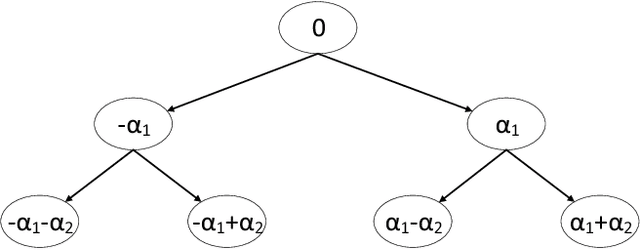Yuanbin Cao
Dr3: Ask Large Language Models Not to Give Off-Topic Answers in Open Domain Multi-Hop Question Answering
Mar 19, 2024



Abstract:Open Domain Multi-Hop Question Answering (ODMHQA) plays a crucial role in Natural Language Processing (NLP) by aiming to answer complex questions through multi-step reasoning over retrieved information from external knowledge sources. Recently, Large Language Models (LLMs) have demonstrated remarkable performance in solving ODMHQA owing to their capabilities including planning, reasoning, and utilizing tools. However, LLMs may generate off-topic answers when attempting to solve ODMHQA, namely the generated answers are irrelevant to the original questions. This issue of off-topic answers accounts for approximately one-third of incorrect answers, yet remains underexplored despite its significance. To alleviate this issue, we propose the Discriminate->Re-Compose->Re- Solve->Re-Decompose (Dr3) mechanism. Specifically, the Discriminator leverages the intrinsic capabilities of LLMs to judge whether the generated answers are off-topic. In cases where an off-topic answer is detected, the Corrector performs step-wise revisions along the reversed reasoning chain (Re-Compose->Re-Solve->Re-Decompose) until the final answer becomes on-topic. Experimental results on the HotpotQA and 2WikiMultiHopQA datasets demonstrate that our Dr3 mechanism considerably reduces the occurrence of off-topic answers in ODMHQA by nearly 13%, improving the performance in Exact Match (EM) by nearly 3% compared to the baseline method without the Dr3 mechanism.
Alternating Multi-bit Quantization for Recurrent Neural Networks
Feb 01, 2018



Abstract:Recurrent neural networks have achieved excellent performance in many applications. However, on portable devices with limited resources, the models are often too large to deploy. For applications on the server with large scale concurrent requests, the latency during inference can also be very critical for costly computing resources. In this work, we address these problems by quantizing the network, both weights and activations, into multiple binary codes {-1,+1}. We formulate the quantization as an optimization problem. Under the key observation that once the quantization coefficients are fixed the binary codes can be derived efficiently by binary search tree, alternating minimization is then applied. We test the quantization for two well-known RNNs, i.e., long short term memory (LSTM) and gated recurrent unit (GRU), on the language models. Compared with the full-precision counter part, by 2-bit quantization we can achieve ~16x memory saving and ~6x real inference acceleration on CPUs, with only a reasonable loss in the accuracy. By 3-bit quantization, we can achieve almost no loss in the accuracy or even surpass the original model, with ~10.5x memory saving and ~3x real inference acceleration. Both results beat the exiting quantization works with large margins. We extend our alternating quantization to image classification tasks. In both RNNs and feedforward neural networks, the method also achieves excellent performance.
 Add to Chrome
Add to Chrome Add to Firefox
Add to Firefox Add to Edge
Add to Edge